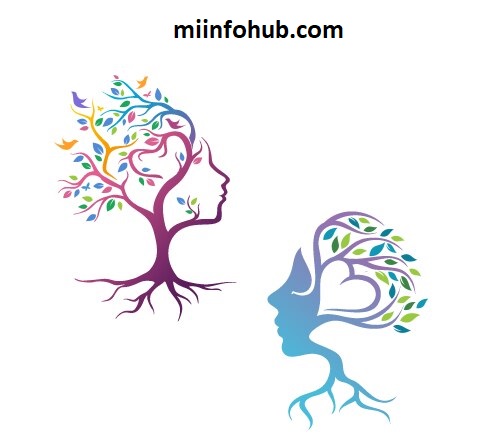Behavioral health counselor plays an essential role in helping individuals manage mental health challenges, cope with stress, and achieve personal growth. They guide patients through emotional or behavioral issues, providing therapeutic support and strategies for a healthier mindset. In this article, we’ll explore the roles, responsibilities, qualifications, and impact of behavioral health counselors, as well as practical tips for choosing the right one.

Understanding The Role Of A Behavioral Health Counselor
A behavioral health counselor is a trained professional who provides support to individuals struggling with various mental, emotional, and behavioral challenges. From coping with depression and anxiety to managing substance abuse or relationship difficulties, they use evidence-based techniques to help clients lead healthier, more fulfilling lives. If you want to know about behavioral health specialist then click here.
Key Responsibilities Of A Behavioral Health Counselor
- Assessing Client Needs
Counselors begin by assessing each client’s mental health and lifestyle factors, often using interviews, questionnaires, and discussions to understand the client’s unique background and needs. - Developing Treatment Plans
Based on assessments, counselors create customized treatment plans tailored to each client. These plans might involve talk therapy, behavioral exercises, and coping strategies. - Providing Therapeutic Support
Behavioral health counselors employ therapeutic techniques such as cognitive-behavioral therapy (CBT), motivational interviewing, and mindfulness practices to help clients work through issues. - Monitoring Progress
Regular check-ins allow counselors to assess their client’s progress and adjust treatment plans as needed, ensuring that the approach remains effective and aligned with the client’s goals. - Educating Clients and Families
Counselors provide guidance to clients and sometimes their families, teaching strategies to manage stress, recognize symptoms, and foster a supportive environment at home. - Crisis Intervention
In some cases, counselors provide immediate support during mental health crises, helping clients manage intense emotions or situations.

Types Of Behavioral Health Services Provided
- Individual Therapy: One-on-one sessions to address personal challenges, such as anxiety, depression, or trauma.
- Family Counseling: Therapy focused on improving family dynamics and communication, helping members navigate issues together.
- Group Therapy: Sessions with multiple clients sharing similar struggles, offering peer support and shared experiences.
- Substance Abuse Treatment: Counseling for addiction recovery, including support for overcoming dependencies and building healthier habits.
- Crisis Intervention: Immediate support in emergencies, such as suicidal thoughts or severe emotional distress, providing rapid response and stabilization.
Qualifications And Training Required
To become a behavioral health counselor, individuals typically need a bachelor’s degree in psychology, counseling, or a related field, followed by a master’s degree in counseling or behavioral health. Additionally, they must complete supervised clinical hours and pass state licensing exams to practice professionally. Some counselors pursue specialized certifications in areas such as substance abuse, trauma therapy, or family counseling.
Cultural Competence And Diversity
Cultural competence and diversity are essential in behavioral health counseling. Counselors with cultural competence understand and respect clients’ diverse backgrounds, including their values, beliefs, and traditions. This awareness allows counselors to adapt their methods to meet each client’s unique needs effectively. By embracing diversity, counselors help clients feel understood and respected, which is crucial for building trust. This approach fosters a supportive environment where clients from all backgrounds can openly express themselves, ultimately enhancing the effectiveness of the counseling process.

Benefits Of Working With A Behavioral Health Counselor
- Personalized Support
A counselor provides tailored guidance that addresses each client’s specific challenges, promoting effective recovery and personal growth. - Emotional Support and Insight
Clients benefit from having a compassionate and neutral party to share their experiences, helping them gain new perspectives and coping skills. - Accountability
Regular sessions with a counselor provide structure and accountability, helping clients stay on track with their mental health goals. - Improved Relationships
Through therapy, clients learn communication and conflict resolution skills that positively impact their relationships.
The Impact Of Behavioral Health Counseling On Families
Behavioral health counseling can greatly benefit families. Counselors work not only with individuals but often include family members in the process. This approach helps families understand and support a loved one’s mental health journey. Counseling can improve communication, reduce conflict, and strengthen family bonds. By addressing issues together, families learn coping skills and build resilience. The positive impact often extends beyond the sessions, creating a healthier home environment.

How To Choose A Behavioral Health Counselor
Selecting the right counselor is key to a positive therapeutic experience. Here are some tips to consider:
- Specialization: Look for a counselor who specializes in areas relevant to your needs, such as addiction, anxiety, or relationship counseling.
- Experience: Consider the counselor’s experience level, particularly if you’re dealing with complex issues.
- Approach: Research the counselor’s therapeutic approach to ensure it aligns with your preferences, whether that’s CBT, holistic counseling, or another method.
- Credentials: Verify the counselor’s certifications and licenses, which ensure they meet professional standards.
Behavioral Health Counselor vs. Therapist
While both behavioral health counselors and therapists provide mental health support, they differ slightly. Counselors often focus on short-term, practical strategies for immediate challenges, whereas therapists may engage in long-term treatment, exploring deeper-rooted issues. Both play essential roles in mental health care, and the choice depends on individual needs.
Behavioral Health Counselors vs. Therapists: Understanding The Key Differences
| Aspect | Behavioral Health Counselor | Therapist |
|---|---|---|
| Focus | Addresses specific behavioral issues with practical, solution-based interventions. | Explores deeper emotional and psychological issues for long-term growth. |
| Approach | Uses behavioral interventions like CBT and Solution-Focused Therapy. | Applies diverse methods, such as psychodynamic and existential therapy, to explore underlying concerns. |
| Client Goals | Aims to manage specific behaviors and improve daily functioning. | Helps clients explore feelings and resolve deeper conflicts for lasting change. |
| Typical Issues | Focuses on behavioral issues like addiction, anxiety, and stress management. | Covers broader mental health issues, including depression, trauma, and identity. |
| Treatment Duration | Typically short- to mid-term, targeting specific goals. | Can vary but often involves longer-term therapy based on client needs. |
| Education | Requires a master’s in counseling or behavioral health, plus licensure. | Requires a master’s or doctoral degree in psychology, counseling, or social work, with clinical licensure. |
| Work Setting | Often in community health centers, schools, or outpatient clinics. | Commonly in private practice, hospitals, or mental health clinics. |
| Regulatory Standards | Licensed as a counselor with state certification in behavioral health. | Licensed as a therapist, psychologist, or social worker under national and state standards. |
| Interaction Style | Practical and goal-oriented, focusing on behavior management. | Reflective and exploratory, guiding clients to process deeper emotions. |

Challenges And Rewards Of Being A Behavioral Health Counselor
Working as a behavioral health counselor is both challenging and rewarding. Counselors often face emotionally taxing situations, helping clients through crises or long-term struggles. They must remain empathetic and patient while managing stress. Despite these challenges, the rewards are profound—counselors have a lasting impact on clients’ lives, helping them achieve stability and happiness.
Frequently Asked Questions (FAQs)
What types of issues do behavioral health counselors address?
Behavioral health counselors help with a wide range of issues, including anxiety, depression, relationship issues, substance abuse, and behavioral disorders.
How long do clients typically work with a counselor?
Duration varies depending on individual needs. Some clients work with counselors for a few months, while others may continue for years.
How is progress measured in behavioral health counseling?
Progress is usually tracked through regular assessments and goal-setting, with adjustments made based on each client’s development.
Real-Life Impact: Testimonials And Case Studies
Behavioral health counselors significantly impact their clients’ lives. For example, one client shared how their counselor’s guidance helped them overcome social anxiety, allowing them to reconnect with loved ones and thrive professionally. Another client found support in managing addiction, with their counselor’s consistent encouragement and accountability playing a crucial role in recovery.

Insurance And Payment Options
Behavioral health counseling is often covered by insurance, including Medicaid, Medicare, and private plans. However, coverage varies, so it’s essential to check your specific plan for details on co-pays or out-of-pocket expenses. Many counseling agencies also offer sliding scale fees or flexible payment plans to make counseling accessible to all.
Future Of Behavioral Health Counseling
The field of behavioral health counseling is evolving with advancements in technology. Telehealth, for instance, has made counseling services more accessible, allowing clients to connect with counselors from home. Additionally, apps for mental health monitoring and virtual support communities are enhancing the support available to clients between sessions. Behavioral health counselors will continue to adapt, integrating these tools to provide even more comprehensive care.
Conclusion
Behavioral health counselors are invaluable in supporting mental well-being, guiding clients through life’s challenges, and fostering resilience. With skills in therapy, assessment, and crisis intervention, they play a pivotal role in improving clients’ lives. If you’re considering working with a behavioral health counselor, understanding their qualifications, roles, and impact can help you make an informed choice. Take the first step towards mental wellness today by reaching out to a certified behavioral health counselor who aligns with your goals.
Call to Action
Ready to improve your mental health? Find a certified behavioral health counselor who suits your needs and start your journey towards a healthier mindset today. Quality mental health support is closer than you think!

